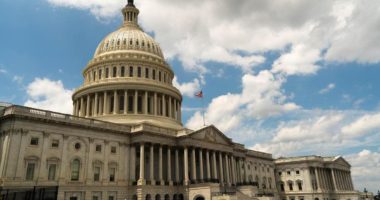On August 10th, the Centers for Medicare and Medicaid Services (CMS) published a proposed rule that would rescind a previously finalized regulation that implemented a “most favored nation” reimbursement methodology for certain Part B drugs and biologics, on which we first reported November 23, 2020.
The new demonstration would have initially applied to the 50 most expensive Part B drugs and biologics, which, according to CMS, accounted for approximately 75% of CMS’s Part B drug and biologic spending in 2019. This list included three biologics used by allergists/immunologists: omalizumab (21st), mepolizumab (39th), and benralizumab (47th).
Under the demonstration, CMS would have assigned a new “most favored nation” (MFN) payment for these drugs and biologics based on the lowest per capita gross domestic product (GDP) adjusted price paid by an Organisation for Economic Co-operation and Development (OECD) member country with a GDP per capita that is at least 60% of the U.S. GDP per capita. CMS proposed to blend the MFN price with the average selling price (ASP) price while it phased in the MFN price.
The payment model was subject to multiple lawsuits that successfully blocked CMS from implementing the model while the legal challenges played out in the courts. These legal victories were largely won on procedural grounds rather than on the substance of the policy itself. CMS is proposing to withdraw the original policy so that it can consider new ways to address comments on the model as well as the original rule’s “procedural deficiencies” as identified in these lawsuits.
For years, Congress and CMS have been trying to reform how Medicare reimburses for prescription drugs and biologics covered under Medicare Part B. Reducing Medicare spending on these outpatient drugs and biologics is a bipartisan issue that has vexed both Democrat and Republican administrations.
CMS historically reimbursed at 106% of the ASP. This methodology incentivized use of the most expensive drug – even if a cheaper drug is equally efficacious. In November of 2020, CMS announced it would use its demonstration authority under the Affordable Care Act (ACA) to implement a new, mandatory model to replace the ASP-based reimbursement methodology.
Despite CMS’s plan to rescind this proposal, this is not the end of CMS’s efforts to reform how it pays for drugs and biologics under Medicare Part B. Reducing prescription drug and biologic spending is a bipartisan issue. It remains to be seen if CMS will continue pursuing a MFN methodology or if it will try a new approach. Both the Obama and Trump administrations attempted to replace the 106% of ASP methodology. It is a safe bet that the Biden administration will make its own attempt to replace that formula too. In the meantime, however, the ASP +6% remains in effect.
The Advocacy Council – we have you covered.



